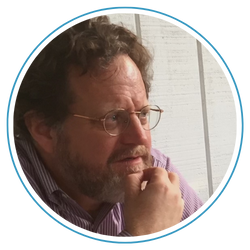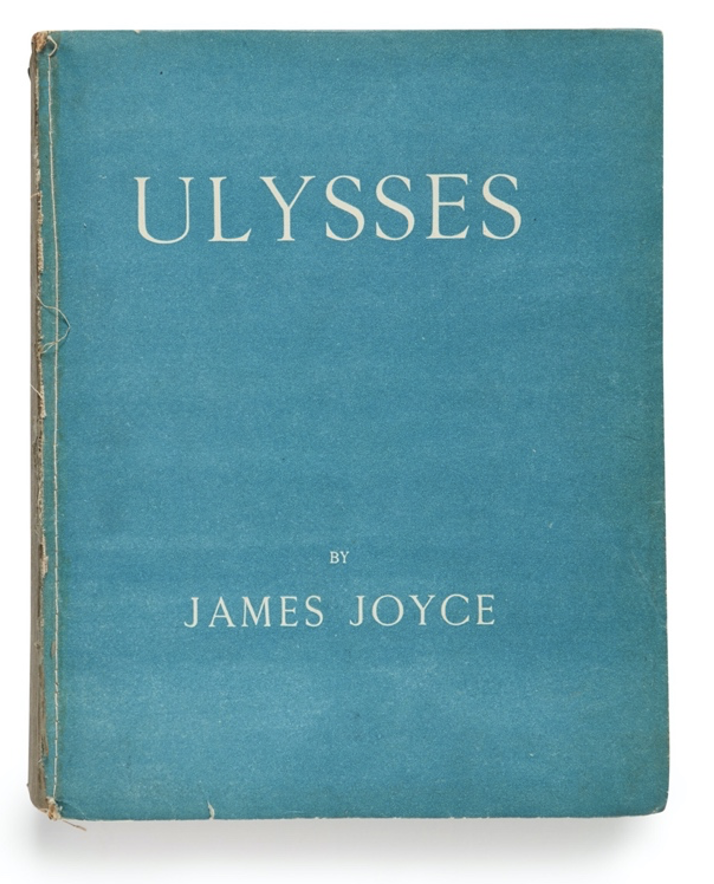
COURSE
Five Alternate Thursdays
This program WILL NOT BE recorded.
Registration closes at NOON EST. on March 29th.
You are a spiritual exercise, an ascetic discipline, an agonizing ritual, an arcane procedure, eighteen alchemical alembics piled on top of one another, where amino acids, poisonous fumes, and fire and ice, the homunculus of a new, universal consciousness is distilled!
- C.G.Jung, “ Ulysses: A Monologue,” CW 15, par. 201
 James Joyce's Ulysses: there is nothing like it! When Sylvia Beach published Ulysses out of her Parisian bookstore, Shakespeare and Co., a century ago on February 2, 1922 (Joyce's 40th birthday), did she know what was being unleashed on the world? James Joyce likely did. Carl Jung certainly knew something significant had happened and expressed as much in his essay, "Ulysses: A Monologue" (in The Spirit in Man, Art, and Literature). Jung compares Ulysses to a transformative, psychological experience, akin to those expressed in alchemy.
James Joyce's Ulysses: there is nothing like it! When Sylvia Beach published Ulysses out of her Parisian bookstore, Shakespeare and Co., a century ago on February 2, 1922 (Joyce's 40th birthday), did she know what was being unleashed on the world? James Joyce likely did. Carl Jung certainly knew something significant had happened and expressed as much in his essay, "Ulysses: A Monologue" (in The Spirit in Man, Art, and Literature). Jung compares Ulysses to a transformative, psychological experience, akin to those expressed in alchemy.
In this course, we shall enter the world of the psyche in Ulysses. Indeed, it is a profoundly psychological text. A neurologist, the first reviewer for The New York Times, stated, "I have learned more psychology and psychiatry from it than I did in 10 years at the Neurological Institute." In Ulysses, the inner world of the psyche is contained, laid bare, and released. On one ordinary day, June 16, 1904, mythopoetic patterns and archetypal dynamics, touching the core of human experience, are revealed. Ulysses is a world where language is psyche, and the psyche may discover itself through it.
Suggested Reading: James Joyce's Ulysses
Class Format: Presentation and discussion, with passages being emailed to the class
Week I. Introduction: Ulysses' Structure and Orientation
Week II. Telemachia: Stephen Dedalus-Telemachus and the Lost Hero (Ulysses, Part I, Chapters 1 - 3)
Week III. Odyssey: Leopold Bloom-Ulysses and Exile (Ulysses, Part II, Chapters 1 - 9)
Week IV. Odyssey: The Journey through the Underworld (Ulysses, Part II, Chapters 10 - 12)
Week V. Nostoi: Molly-Penelope and Sophia (Ulysses, Part III, Chapters, 1 - 3)
Mark Napack, M.A., S.T.L., M.S., studied archetypal patterns in comparative literature at Columbia University, after which he applied Jungian theory to the redemption motif in medieval theology for his thesis at Fordham University. He further studied Jung, psychology, and the history of religion at Loyola and Catholic Universities. A long-time graduate and college instructor, Mark has presented at international conferences and his work has appeared in scholarly journals and books in English and French. Mark Napack, LCPC, is also a Jungian-informed psychotherapist in North Bethesda, MD.

ZOOM LINKS: Zoom links can be found in your registration confirmation email. If you sign up before 12:00pm EST (NOON) on Friday, the day before the program, you will receive you Zoom link by Friday at 4:00pm EST. If you do not receive your link 24 hours in advance, please reach out asap directly to support@jung.org. HOWEVER, if you sign up AFTER 12:00pm (NOON), the day before the program, you will receive your zoom link by 10:00am EST the day of the program.
CANCELLATION: You may cancel your registration up to 1 week prior to the program.
By agreeing to enroll in an online program offered by the Jung Society of Washington, you are also agreeing to comply with our terms. This means that you cannot record (through internal or external devices) the audio, visuals (photos), or any videos of the program. The intellectual property belongs to the presenter, and we ask you not to violate this policy. Also, we highly value the anonymity of the content of the program, of the presenters, and of individuals present in the program, and hope that everyone can contribute to a respectful and trust-building online environment. Thank you!
